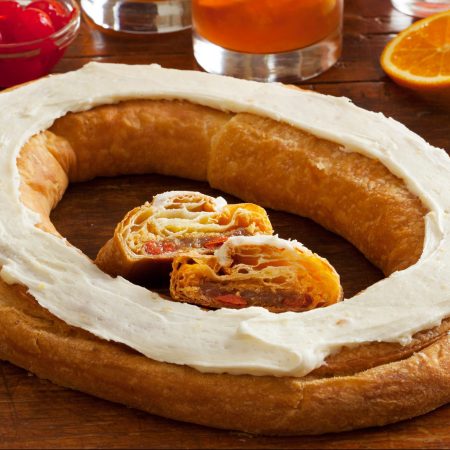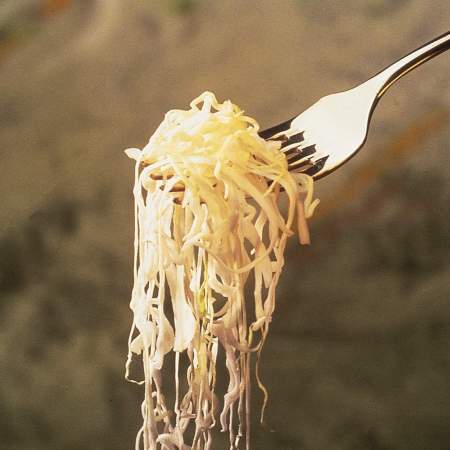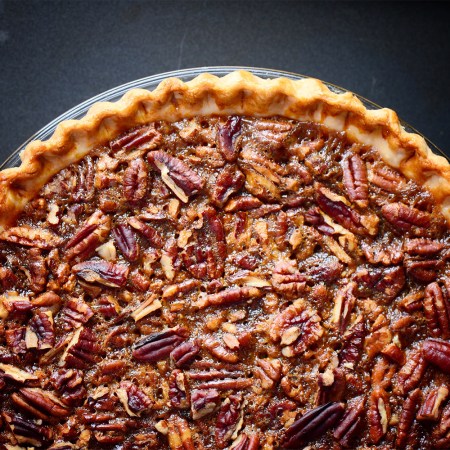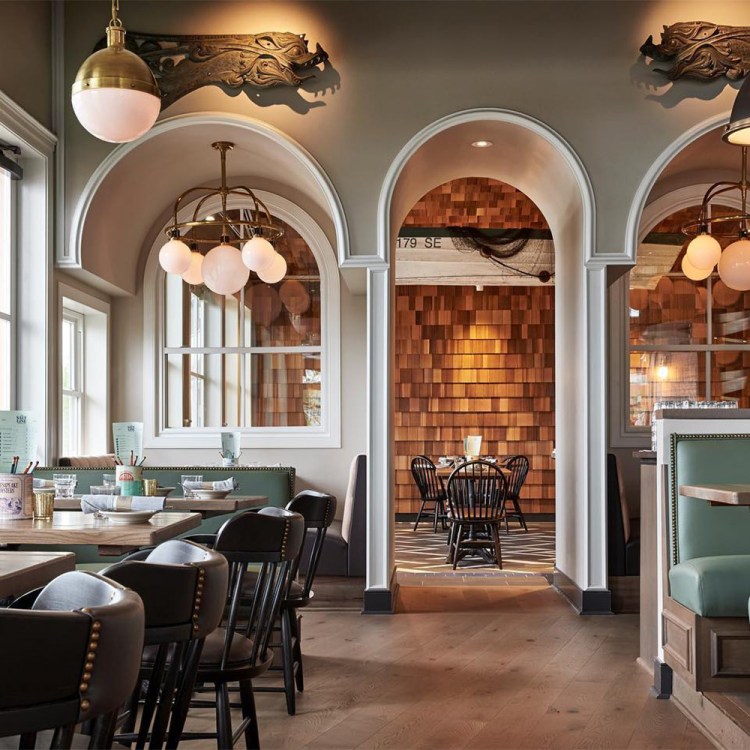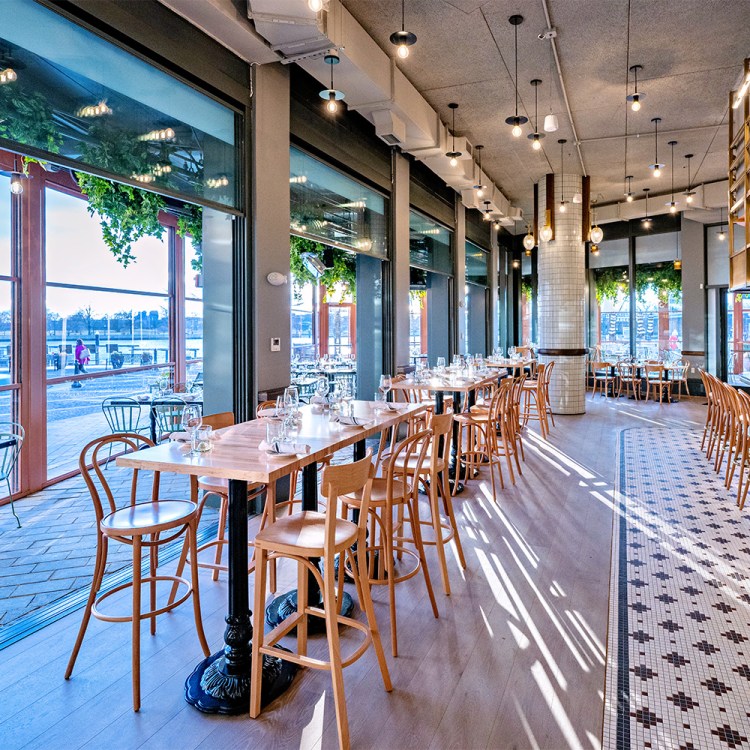As the restaurant industry continues to find ways to survive, Paola Velez, the James Beard Rising Star Chef award winner who most recently served as the executive pastry chef at D.C.’s Kith and Kin, saw an opportunity. After the death of George Floyd and protests for Black lives, Velez needed to find a way to use her abilities as a pastry chef to help her community.
Spending much of her life blending baking and social justice, she began hosting pop-ups to raise funds to support organizations. “I try to be as politically charged as I possibly can with my food,” says Velez, “because it’s really hard to argue with people when their mouth is full.”
Coming off the heels of her donut pop-up Doña Dona in partnership with Latin cocktail bar Serenata, which raised $1,100 for Ayuda DC, an organization that supports undocumented workers and immigrants, Velez was approached by chef Willa Pelini of Emilie’s to do another pop-up. While she calculated that a similar retail pop-up concept could raise $4,000 — a significant contribution to any organization — Velez felt it was not enough, “We need to dismantle oppression. We need to end racism basically, and you need money to make stuff happen,” she tells InsideHook.
Forty-eight hours later, Bakers Against Racism, the virtual bake sale, was born. Founded by Velez with co-founders Pelini and chef Rob Rubba of Scrappy’s Bagel Bar and Oyster Oyster, Velez projected that if they could get 80 participants, that could sell 150 pieces, it would be quite a bit of money, a lot more than she could raise on her own. In the first hour of sign-ups, they got 158 people and 24 hours; it was 650. Ultimately over 2,500 participated and to date donated close to 1.8 million to social justice organizations.
From professional chefs to home bakers, the goal was to include as many people as possible. “There’s so many people who are vulnerable right now and who are baking from their home kitchen to relieve stress. I thought to myself, ‘Oh, y’all been training for this for two months? I got you.’”
Each participant was given access to a folder with extensive resources on how to run their own version of a pop-up, from managing orders to a list of podcast recommendations to listen to while baking. The guide was meant to “engage your mind and challenge the status quo by listening and learning from Black voices” featured podcasts such as NPR’s Code Switch, The Stoop and 1619 from The New York Times. Velez felt that the only way that they were going to make lasting changes was also to educate and address problems that are being faced within minority communities and especially the Black community. “We were doing our best to make sure that we not only are giving people the resources to donate, but educating on the history of what being Black in America means,” she says.
Using the hashtag #BakersAgainstRacism on Instagram, a range of sweet and savory confections could be found from participants. From a wedding cake auction to empanadas, it was much more than cookies and cakes. “It wasn’t just cookies and cakes. It wasn’t what you would think a bakery is or who a baker is,” says Velez. “Everybody was open to do whatever they felt comfortable with.”
While the groundswell of support is what the co-founders wanted, it also attracted establishments with a history of problematic behavior. To quell members of the Black community who were impacted by these restaurants, Velez called out those companies on Twitter. She wanted them to know that, while she is always open to them doing the work to support racial justice, this is only the beginning. “This participation, this is step one. This is a good first start, but what you do afterward and how you change, that’s what’s going to mean something,” says Velez. “Participating isn’t a get out of jail free card, this isn’t Monopoly; this is real life,” says Velez. “You do this because you care or because you knew you messed up and wanted to change. There’s no in between.”
While the planning and overall vision for Bakers Against Racism were all Velez, she’s quick to share that her two co-founders who have been instrumental in making it happen. From the creation of a wild and bright branding designed by Rubba and constant support and allyship by Willa, it was a team effort that included responding to hundreds of questions and updating resource materials for participants. “I just had the seed, and they were able to put the fertilizer, and the water, all of our spouses were able to do so much for us and sustain us,” says Velez.
Bakers Against Racism builds on a long history of Black women using baking and cooking as a means of activism. From Georgia Gilmore, who participated in the Montgomery Bus Boycott by selling food and using that money to boycott mass meetings, to Tangerine Jones’s Rage Baking movement, Velez is aware she is part of a larger movement that precedes her and will also follow her. “There’s going to be many more people going to do the same thing, and they’re going to be able to do it better, and there’s nothing wrong with that.”
“I just shared what I’ve learned during COVID, so I don’t own this, this is everybody’s. We raised almost 1.8 million! We did that; it wasn’t my thing. I didn’t do that,” says Velez. “The power of the collective is amazing because we did that. People say, ‘Congratulations to you,’ and I’m like, ‘Me? I didn’t do anything!’”
While Bakers Against Racism totals continue to come in, Velez and her fellow co-founders discuss the next steps in the movement, like helping nurture loosely affiliated chapters around the world. What Velez did share about Bakers Against Racism is that it will focus more on amplifying and creating support systems for Black and POC bakers. “The more that I pointed to businesses that were Black-owned,” says Velez, “the more they would get business, as there was this spotlight on us, we were sharing the spotlight with everyone else.”
This article was featured in the InsideHook DC newsletter. Sign up now for more from the Beltway.

